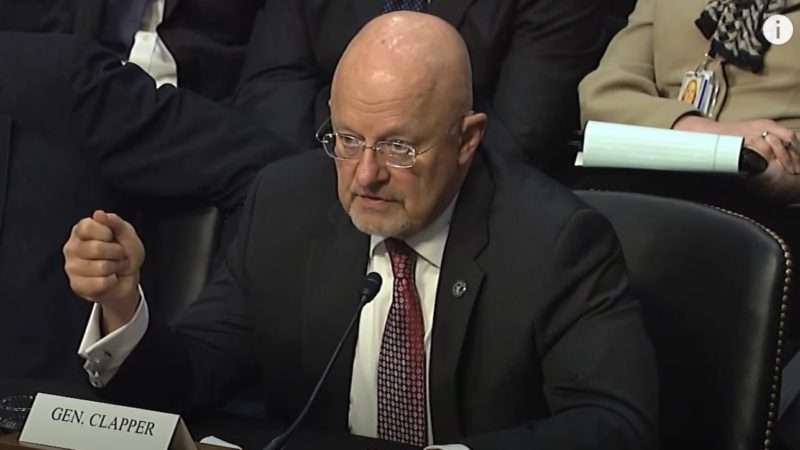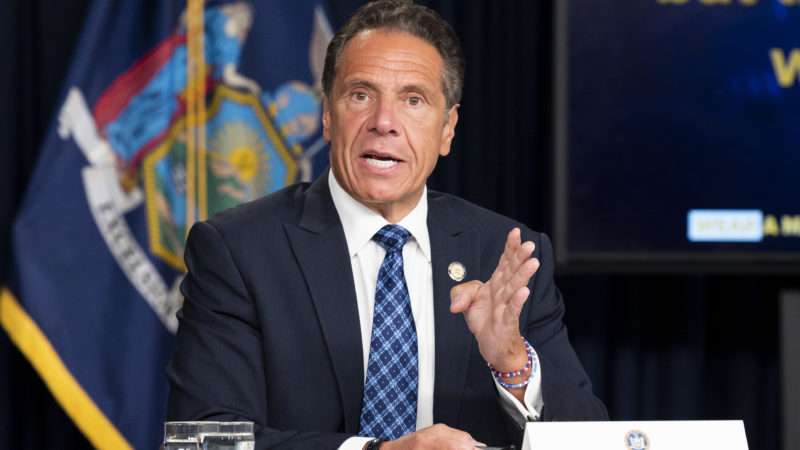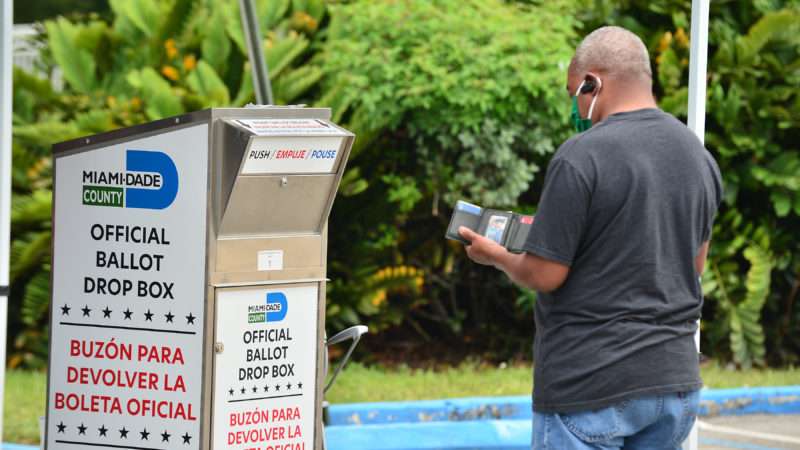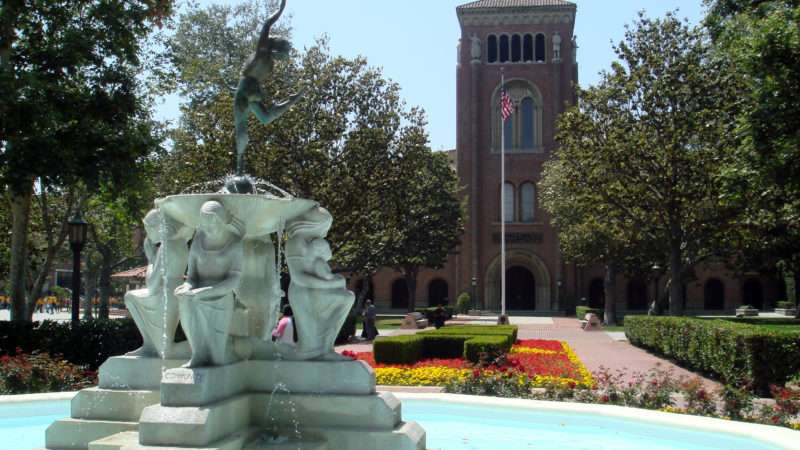UC Berkeley professor Michael Eisen has been involved in a number of initially-crazy-sounding projects over the years, an alarming number of which (open access to scientific publication (PLOS), home genetic sequencing (23andme), plant-based “meat” (Impossible Foods) have actually borne much fruit. Here is his latest—he himself calls it “disturbing and terrifying.”
Eisen’s idea is a variation on the “National Popular Vote” (NPV) scheme. For those of you unfamiliar with how NPV works, the basic idea is as follows (and many more details are available at the NPV website here):
A State—let’s call it New York—enacts a statute with two basic provisions:
- The Governor shall appoint, as presidential electors, the slate of electors submitted by the presidential candidate who receives the largest number of votes cast nationwide in the presidential election. [Currently, of course, it is the candidate winning a plurality of votes cast in NY who gets all of NY’s electors.]
- Paragraph (1) shall only come into effect if and when a sufficient number of other States enact laws with the identical Paragraph (1) provision to cumulatively account for 270 (or more) electoral votes.
You have to admit, whatever your position might be on whether the Electoral College is or is not a useful institution, that it’s a devilishly clever scheme. Without the need for a constitutional amendment, but relying instead on the power granted to the States in Article II to “appoint [electors] in such Manner as the Legislature thereof may direct,” it would guarantee that the Electoral College would elect the winner of the nationwide popular vote, once the 270-electoral-vote threshold were met.
The NPV statute has been enacted into law in 16 jurisdictions, accounting cumulatively for 196 electoral votes (CA, CO, CT, DC, DE, HI, IL, MA, MD, NJ, NM, NY, OR, RI, VT, WA), leaving it 74 electoral votes short of the trigger. In nine additional states with 88 additional electoral votes (AR, AZ, ME, MI, MN, NC, NV, OK, VA) the NPV statute has passed in one house (but not the other) of the state legislature.
One obstacle which makes it difficult for the NPV to achieve the required level of support is the diminishing incentive for the “swing states”—the states that, in the current scheme, hold virtually all of the power in the presidential election (OH, PA, WI, FL, MI, VA, NC)—to join in the NPV scheme. The swing states are “swing” precisely because, unlike CA and AL and NY and KS and …, their electorates are pretty evenly divided between the two parties; because the NPV initiative is widely—though perhaps wrongly—seen as favoring the “blue” team at the expense of the “reds,” the political battle over the NPV, and the political opposition to joining with the NPV States, are likely to be particularly intense in these swing states.
Moreover, precisely because these are the States that effectively hold all the power in the current scheme, they might well be unwilling to give up that power by joining the NPV coalition. Votes, and voters, in the swing states matter a lot more, in the current presidential election environment, than the votes and voters in NY or AL or CA or KS. The presidential candidates—both of them—will be paying an enormous amount of attention to the voters in swing states. The issues about which swing state voters are concerned will be front and center in the campaign—and the hundreds of millons, if not billions, of dollars that the candidates will be pouring into their states during the campaign, ain’t bad, either.
And if you think about it, as the NPV gets closer and closer to the 270 trigger, the “swing states” who don’t join in get even more power (and a bigger slice of those advertising dollars) than they have now. Imagine if, say, PA (20 electoral votes), MI (16), and VA (13) had enacted the NPV statute. The total would now stand at 196+49=245—a mere 25 votes short. The voters in these states (PA, MI and VA) would now be just like voters in NY and AL; their votes would count (for purposes of the national popular vote), but they would no longer get any special additional weight from having come from a “swing state.” On the other hand, the non-joining swing states—FL, OH, WI, NC—become even swing-ier than before, with even more attention being paid to corralling their contested electoral votes than before.
If you are a supporter of the NPV, this is not a great position to be in; as the network of joining states gets larger, those states that have not yet joined are under more of a disincentive to join. It’s a kind of negative feedback, and negative feedback’s not the best way to grow a network.
Enter Mike Eisen. Here’s what he’s proposing as a substitute for the current NPV statute:
- The Governor shall appoint, as presidential electors, the slate of electors submitted by the presidential candidate who receives the largest number of votes cast, in the aggregate pool of voters in those states (the “Joining States”) that have enacted a paragraph identical to this one.
- Paragraph (1) shall only come into effect when the cumulative electoral votes in the Joining States equals or exceeds 270.
Notice how this works. The States enacting this revised NPV law would be agreeing (once the 270 trigger is achieved) to pool their votes with all the other States that have signed onto this scheme, and to give all of their electoral votes to the candidate who receives a plurality of the pooled votes from those Joining States.
And notice that if this statute ever were to come into effect because the 270-vote threshold was met, it would render the votes in the non-joining states completely worthless; votes from non-joining States would play no part whatsoever in determining whom the Electoral College would select as the next president.
That is, if we were to reach the 270-Electoral-vote trigger point, the Joining States would pool their votes together in a pile, determine the candidate who received the most votes in the entire pool, and then they would all designate their Electors to vote for that candidate. And, under the premise that we had reached the 270-vote trigger, that would be sufficient to elect that candidate president no matter what happened in the other non-Joining States.
I think you can see why Prof. Eisen called this “disturbing.” Votes in non-Joining states no longer count at all in determining who gets to be president. Under this scheme, if Ohio does not Join and agree to pool its vote with other Joiners, it runs the risk that enough other States will Join to make Ohio voters completely irrelevant in the presidential election.
And that risk—the risk that the voters in your State will be rendered a total irrelevance the moment the 270 threshold is met—intensifies as the Joiners get closer and closer to 270.
Voila! Positive feedback; the more States that Join, the greater the incentive for non-Joiners to Join, which adds more States to the pool, which increases further the incentive for non-Joiners to Join, and so on.
Could this actually work? Is it really constitutional?
I think the answer to both questions, surprisingly, is “yes.” Neither is simple, so I’ll save my more detailed thoughts for subsequent postings, and just make these observations:
Whether it would work depends a bit on what it means to “work.” If your goal is to create a system under which the winner of the popular vote gets to be president, I think this will do it for you. Notice that under this scheme any non-Joining State can, at any time, enter the ranks of the Joined States. So suppose that Ohio refuses to Join. If the statutory trigger is activated, it faces a simple choice: Watch the next presidential election from the sidelines, with your voters playing no role in determining the outcome, or Join so that Ohioans’ votes count for something. And the same choice would be facing Nebraska, and Alaska, and any other non-Joiners. Indeed, I think this little statute has an almost unstoppable dynamic behind it, and that it would—possibly quite quickly—become law in all states; what State would not want its voters to have any say at all in who becomes the next president?
And there you’d have it; the “pool” would then consist of the entire country, each State’s electors would be pledged to the candidate winning the nationwide pooled popular vote, and that candidate would be elected—unanimously—by the Electoral College. So if that’s your goal, this will, I think, get you there.
As for the constitutional question(s), the Supreme Court just this past term (in the “faithless elector” cases, Chiafalo v. Washington and Colorado v. Baca) strongly, and unanimously, re-affirmed the broad, plenary authority given to the States in Article 2 to appoint electors in any manner they see fit. As I read these and other precedents on this matter, NY is perfectly free to declare, in its election law, that it will appoint electors in accordance with the popular vote count in New Jersey; it would be odd if it did so, but it would not be unconstitutional. And if NY can do that, why can’t it say that it will appoint electors in accordance with the popular vote count in NY+NJ+any other State that wants to be in the common pool.
State power in this regard is, presumably, subject to the other binding provisions of the federal constitution; NY cannot declare that it will only appoint white males as electors, for example. But I’m having trouble seeing how Eisen’s proposal runs afoul of any superseding constitutional provision. I suppose that an Ohioan could assert that the scheme violates the principle of “one person/one vote” under the Equal Protection Clause, by causing his/her vote to count for nothing in NY’s determination of who to appoint as an elector while a New Jerseyan gets a say in the matter. But does an Ohioan have standing to challenge NY election law? And in any event, it’s hard to see how an Ohioan somehow has a constitutional right to have his/her votes counted by NY; it’s not as though under the current, and presumably constitutional, scheme NY takes Ohioans’ preferences into account when choosing its electors—so how can an Ohioan contend that this “right” was violated by the NPV scheme?
from Latest – Reason.com https://ift.tt/3gXErLO
via IFTTT



